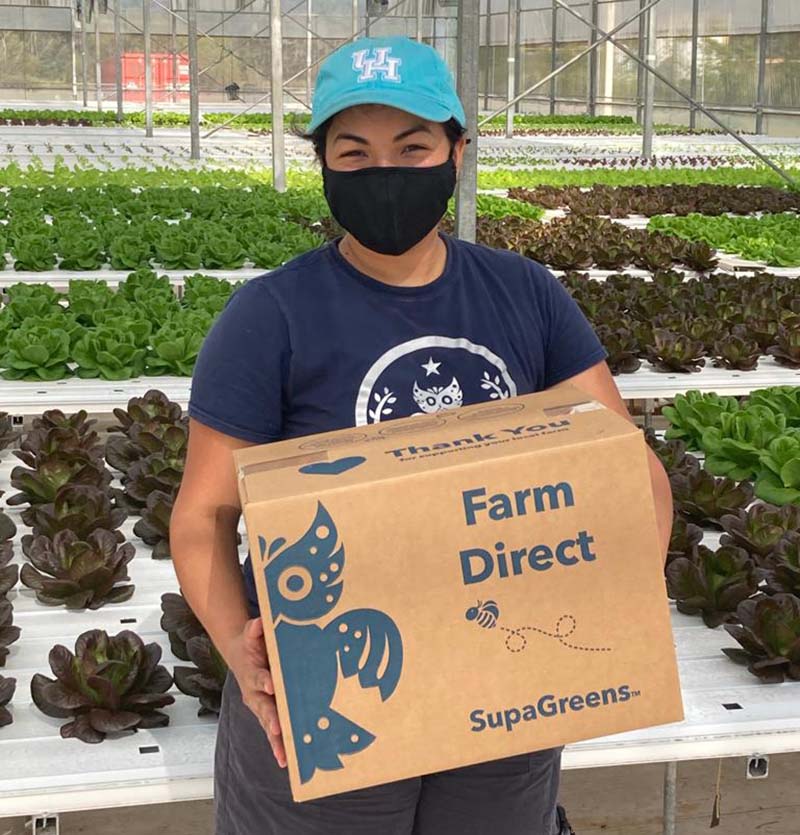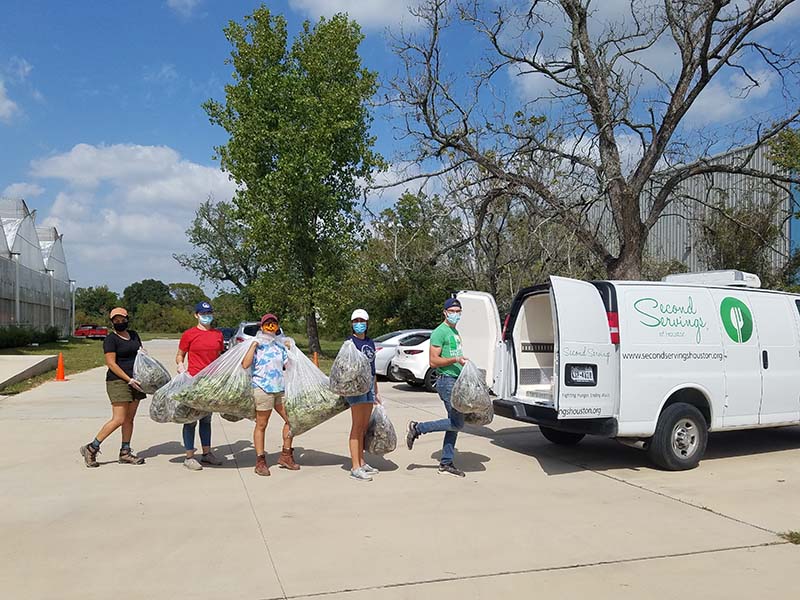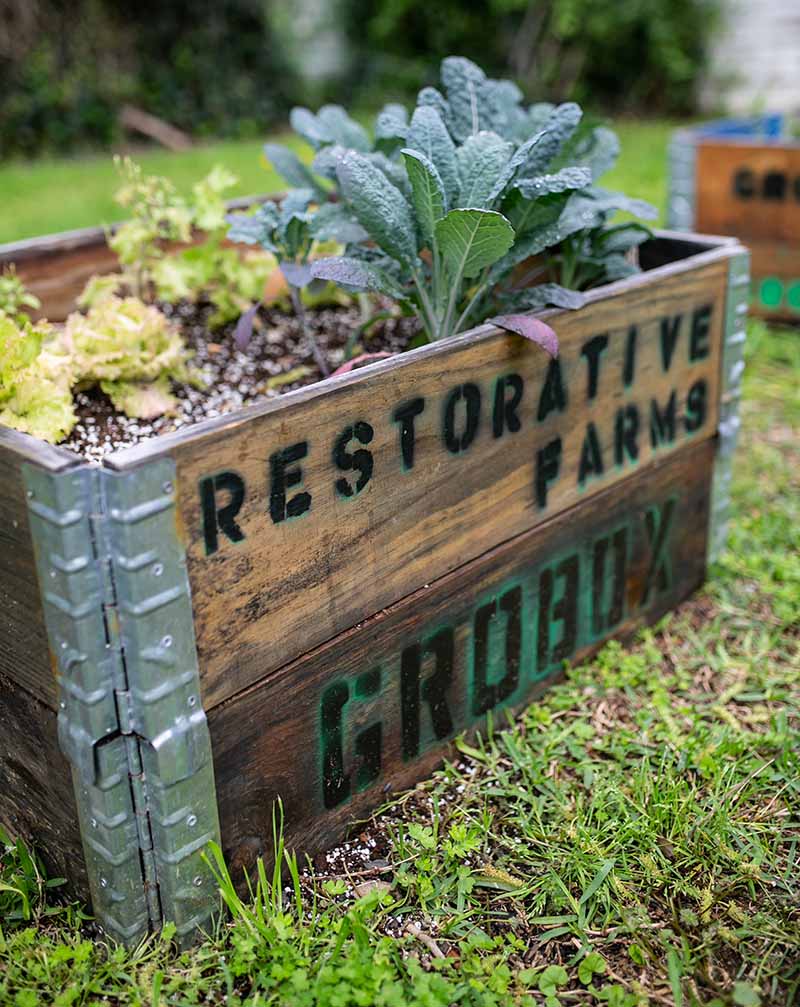Innovative farms make mark on urban food landscapes

Two urban Texas farms are implementing creative business and food distribution solutions as the coronavirus pandemic has strained the food system and spotlighted the urgent need for positive changes at all levels of the food industry.
The farms are recipients of the American Heart Association's second annual Foodscape Innovation Awards.
Twenty-six organizations submitted applications showcasing health promoting innovations, which were reviewed by a panel of judges with expertise in nutrition, science, retail, manufacturing and public health. The panel chose Moonflower Farms as the recipient of the Excellence award. The public voted for Restorative Farms as the Consumer Choice awardee among three finalists selected by judges.
Moonflower Farms
Moonflower Farms won for its entry "Sustainable Farming Through Water Conservation."
CEO and Founder Federico Marques started Moonflower Farms as Houston's first vertical farm in 2016. Since then, it has expanded into a 20,000-square-foot greenhouse that grows herbs, microgreens, multiple types of lettuce and other produce.

"The hydroponic farm relies on rainwater to control costs and environmental impact," Marques says. "The greenhouse grows 10 times more produce per square foot and uses 90-95% less water than typical field growing.
"The farm is active all year regardless of weather conditions. In fact, after Hurricane Harvey ravaged Houston in 2017, the farm continued to operate uninterrupted even when other local farms were destroyed."
Before starting the farm, Marques was successful in other careers and worked with NASA researchers as they explored ways to clean air and water and to grow vegetables in space. He says his wife's celiac disease — an immune reaction to eating gluten — motivated him to learn about food's effects on health.
"I'm a strong believer that you are what you eat," Marques says. "We're very connected to the community and always want them to trust that our food is pesticide-free and locally grown."
Moonflower Farms still sells its high-quality produce year-round to restaurants, but COVID-19 prompted Marques to streamline distribution and, through its newly launched farm direct program, market fresh leafy greens online for weekly delivery to the public.
Besides providing produce at affordable prices to residents in underserved communities, Marques donates 10% of the food grown to food banks.
"We know about the importance of helping community," said Lydia Smith, Moonflower Farms' vice president of business development. "That's where our success lies. When people help people, we all win."

In 2020, Moonflower donated over 2,000 pounds of its harvest locally.
"The donations we receive from Moonflower Farms are incredible," said Barbara Bronstein, founder and president of Second Servings, a partner organization whose "food rescue" program benefits shelters, soup kitchens and other charities. Moonflower's greens "are so appreciated by the needy Houstonians we serve, who lack affordable, convenient access to fresh produce."
Restorative Farms
Restorative Farms, a nonprofit, self-sustaining farm system in an underserved area in South Dallas, won for its entry "Urban Farming Hub Solutions for Healthy Food & Jobs."
The founders' mission is to help neighborhoods by providing jobs, vocational training, seedlings, soil and support to grow fresh vegetables.
Co-founder and Executive Director Owen Lynch says he and other partners started Restorative Farms to combat food deserts — areas that lack healthy food — in parts of Dallas.
"There have been hundreds of studies done on South Dallas, but very little active change," Lynch says. "We knew we needed to be different. We're not just putting a farm in, we're doing something much bigger."
Since 2017, Restorative Farms has installed professionally run seedling and training farms that promote economic sustainability. Its second farm and training center, established in 2020, is a production and food distribution hub and model farm for small plot intensive, or SPIN, urban farming.
Lynch says the farm's name was inspired by "restorative justice" and the nonprofit's mission to train and employ people who were formerly incarcerated. Tyrone Day, Restorative Farms' master gardener, received a horticultural degree while imprisoned after being wrongfully convicted. Day now manages the farm and shares his vast knowledge with the community.
"Tyrone is the perfect example of an asset that was totally underutilized before he came to work here," Lynch says. "He's the hero. His knowledge is what helps the community today and will continue to help the community for years to come."
Growing gardens has numerous other benefits, Lynch adds.

"Working in soil releases endorphins," he says. "It reduces stress. Plus, the kid who grows his own food is more likely to eat it. We're creating this connection for kids on where their food comes from."
"These farms give people a sense of purpose," says Doric Earle, Restorative Farms' director of operations. "People need positive moments, but during a pandemic they need them even more. The fact that we were able to sustain, expand and help so many people was uplifting in a really tough year."
In 2020 Restorative Farms distributed 363 of its GroBoxes — raised bed gardens stocked with premium soil and seasonal seedlings — throughout the community, including 160 donated to alleviate food desert conditions in South Dallas. The organization also helped install 42 raised beds in a raised-bed farm at a local homeless shelter. And as COVID-19 dried up farmers market and restaurant revenue for local growers, Restorative Farms helped them pool their produce and launch a direct-to-consumer subscription program.
Restorative Farms has multiple community partners, including the city of Dallas and Southern Methodist University, where Earle and Lynch are professors.
The American Heart Association anticipates that the awards will spur more innovation and positive changes to improve the food supply and public health.
Learn more about the Foodscape Innovation Awards.





